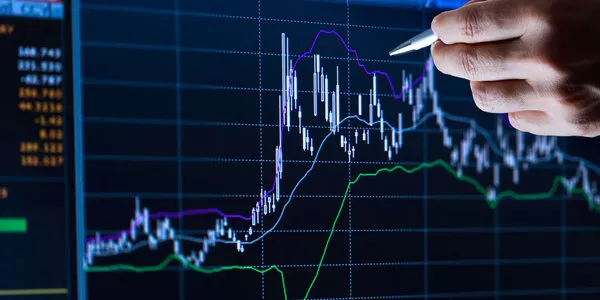
Weekly Update - Covid-19 – Continuing Risk Reduction
As the coronavirus pandemic has continued to gather pace across the globe, financial markets have come under heavy selling pressure, with global equities falling yesterday into a bear market and yield differentials on High Yield bonds in Europe spiking 360 basis points (bps) above their January lows. Official statements, such as President Trump's press conference on Wednesday and the ECB meeting yesterday, have not proved successful in stabilising markets – indeed the downturn gathered pace yesterday afternoon. What is the outlook for the global economy and markets? As shown on the left-hand chart below, new daily confirmed cases of Covid-19 infection continue to rise sharply internationally. Moreover, some 40% of all cases outside China have occurred in just three countries (Italy, Iran and South Korea) leaving investors worried that many other nations will experience the same trends in coming weeks. So far, the daily rate of increases in new confirmed cases has only slowed marginally in Italy, from 27% at end February to 21% yesterday. In China itself, the draconian restrictions imposed in February seem to have borne fruit – the total number of new cases reported yesterday was only 20. In South Korea too, the outbreak appears to be waning with a daily increase in new cases yesterday of 1.4%, down from 35% at end February. These trends suggest that measures of lockdown, travel restrictions, quarantine etc. can be successful in containing the spread of the coronavirus. However, they do exert a heavy economic toll. Monetary authorities have continued to ease policy to ensure adequate functioning of financial markets during the crisis. On Wednesday, the Bank of England cut interest rates by 50bps to 0.25%. And yesterday, both the European Central Bank and the US Federal Reserve eased. The Fed announced a substantial increase in the size of forthcoming repurchase operations and that it would now include longer-dated Treasury bonds in its $60bn programme of monthly purchases of short-term bills. The ECB announced a series of measures: 1) temporary financing operations offering cheaper money until June; 2) more favourable terms on targeted financing operations starting in June with a funding rate as low as 25bps below deposit rates, and 3) an envelope of €120bn of additional asset purchases, which is likely to target mainly corporate bonds. However, interest rates were not cut and Mme Lagarde’s comments were taken as negative for yield differentials in euro zone periphery bonds – both factors contributed to yesterday’s sell-off. Governments have also begun to swing into action. Wednesday’s UK budget included a £12bn increase in spending to combat the coronavirus. Germany’s ruling coalition announced yesterday that it was ready to ditch its long-standing commitment to a balanced budget. And yesterday evening, in addition to measures such as closing all schools and universities, President Macron announced that France was calling for concerted action by the European Union, the G7 and the G20. The fall in equity markets has brought global indices back to December 2018’s lows, thus cancelling all of last year's strong performance. However, even after the recent sell-off, global equity markets have still registered substantial positive performance over the past ten years, up around 155% since March 2009.
Bottom line. The newsflow is likely to remain negative over coming weeks, given the continued spread of the coronavirus and the implementation of strong measures such as lockdowns and quarantines in an increasing number of countries. As a result, we suggest continuing the reduction of exposure to risk assets in diversified portfolios, by way of steady adjustments to allocations in order to increase cash holdings in portfolios. This will enable investors to take full advantage of the opportunities which this crisis will undoubtedly present in due course.
Read full article



